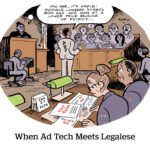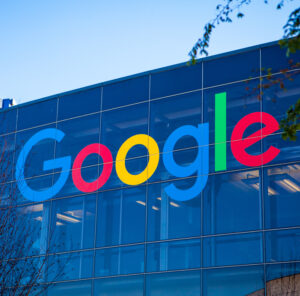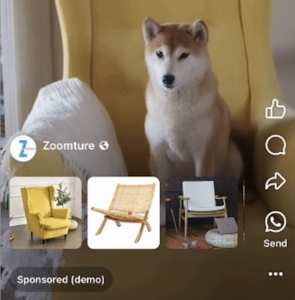 Pokémon Oreos, limited edition Sour Patch Kids, Heinz Halloween outfits and McDonald’s BTS meals.
Pokémon Oreos, limited edition Sour Patch Kids, Heinz Halloween outfits and McDonald’s BTS meals.
As brands go all-in on ecommerce and digital data, there’s been a notable recent uptick in their efforts to acquire first-party ecom data by dangling personalized or limited-edition products.
Savvy kids might even call them thirsty, even as they enter their contact information to download the McDonald’s app to gain access to exclusive meals from rapper Travis Scott and Korean boy band BTS.
What these efforts have in common are they come from brands that haven’t historically had direct relationships with customers, but spend big on advertising.
Big food and beverage brands understand the power of celebrity and gimmick to sell product. With first-party data a CMO-level priority, these briefs now seem to mandate that marketing intiatives must not just sell product, but acquire customer data.
The name of the game these days for world-class CPGs is … data gimmicks.
Yum yum commerce data
Mondelez has been an early mover in the data gimmick snack market. A year ago, the company launched “Oreo iD,” an online service for people to create custom Oreo cookies and designs. It’s aptly named, since Oreo iD is Mondelez’s first product line that requires customers to submit first-party identity data to purchase.
Lately, Mondelez has piggybacked on outside marketing partners as a way into first-party data. The company’s Pokémon Oreos, which from September to October were exclusively available to order online and are also now at Walmart locations, were the fastest-selling Oreo edition ever, CEO Dirk Van de Put told investors this week.
Sour Patch Kids, another Mondelez brand, likewise launched a “Make My Mix” online ordering option so fans can create custom packs of their preferred assortment of sour gummies. In July, Sour Patch Kids worked with Twitch streamer TimTheTatman on a custom co-branded mix that was only available online.
“This program will continue to build the Sour Patch Kids data-driven marketing approach by building CRM efforts through product purchases [and] creating opportunities to remarket to interested consumers,” Mili Ladhha, international associate director of marketing for Mondelez candy brands, told AdExchanger at the time.
Pepsi went mega-gimmick with the 2019 launch of PepCoin, a digital rewards program wrapped in crypto branding. Essentially, it’s a QR code on Pepsi drinks and Doritos-Lays snacks that offers 10% discounts if customers set up an account and link an online wallet like Venmo or PayPal.
Then there’s this abomination: Tropicana-branded toothpaste that doesn’t clash with the flavor of orange juice after brushing your teeth. The Pepsi-backed juice brand (Pepsi spun off Tropicana as a joint venture this year, though it still owns 40% of the business) is delivering the toothpaste to fans who follow the brand account and submit their contact info to join a raffle. That’s the closest Tropicana can come to first-party data acquisition, since it only sells juice in stores.
Tis the season
No, not Christmas. Halloween is the season of CPG data gimmicks.
Heinz sold out a limited edition of “Tomato Blood” (i.e. normal ketchup) and Halloween costume kits for people to dress up as fake-bloody brides, mad scientists and pirates, among other options.
Budweiser and other AB InBev brands opportunistically hop on whatever PR bandwagons help with low-hanging ecom sales. When Home Depot’s giant skeleton decorations became a big meme last year, AB InBev quickly launched costumes specifically designed to fit the skeleton.
This year, AB InBev manufactured full lines of beer-branded costumes for people, dogs and, of course, the same giant skeletons.
AB InBev’s B2B and beverage ordering app BEES (how stores or venues restock beer) is the backbone of its first-party data. But Doukerkis told investors that the “unique at-home experience” of ordering merch and other products from its e-store has generated more than $100 million for the company so far this year.
The QSR play
It isn’t just snack and beverage brands in the data gimmick arena.
QSR brands have taken to offering exclusive menu items or merch if customers order by app (aka with first-party data attached).
McDonald’s had a smash hit co-marketing deal late last year with the rapper Travis Scott, which included a special pre-set meal as well as an extensive line of merch.
The golden arches followed up this year with a similar limited-edition meal-and-merch partnership with the Korean boy band BTS. To buy, customers needed to use the app.
Burger King introduced special meal partnerships with Larissa Machado, Cornell Haynes (you know him as Nelly) and Chase Hudson (ahem, Lil Huddy to the youngs). BK is offering an extra discount for customers who download the app or sign up to its loyalty program to make the purchase.
Not to be left out of the trend, last month Popeyes announced a deal with the rapper Megan Thee Stallion for a series of merchandise drops – t-shirts, a bikini and fried chicken plush toys are among the first products available – as well as a limited-edition hot sauce.
Unsurprisingly, Popeyes customers get special offers and cash back when they purchase Megan Thee Stallion co-branded menu items online or in the app.
Data-poor marketers are clearly doing their best to build up their data assets and wrest control of the ordering experience for themselves. The true test is yet to come – turning that first-party data play from a gimmick to a data set that can power their brands in a world where identity matters more than ever.
















